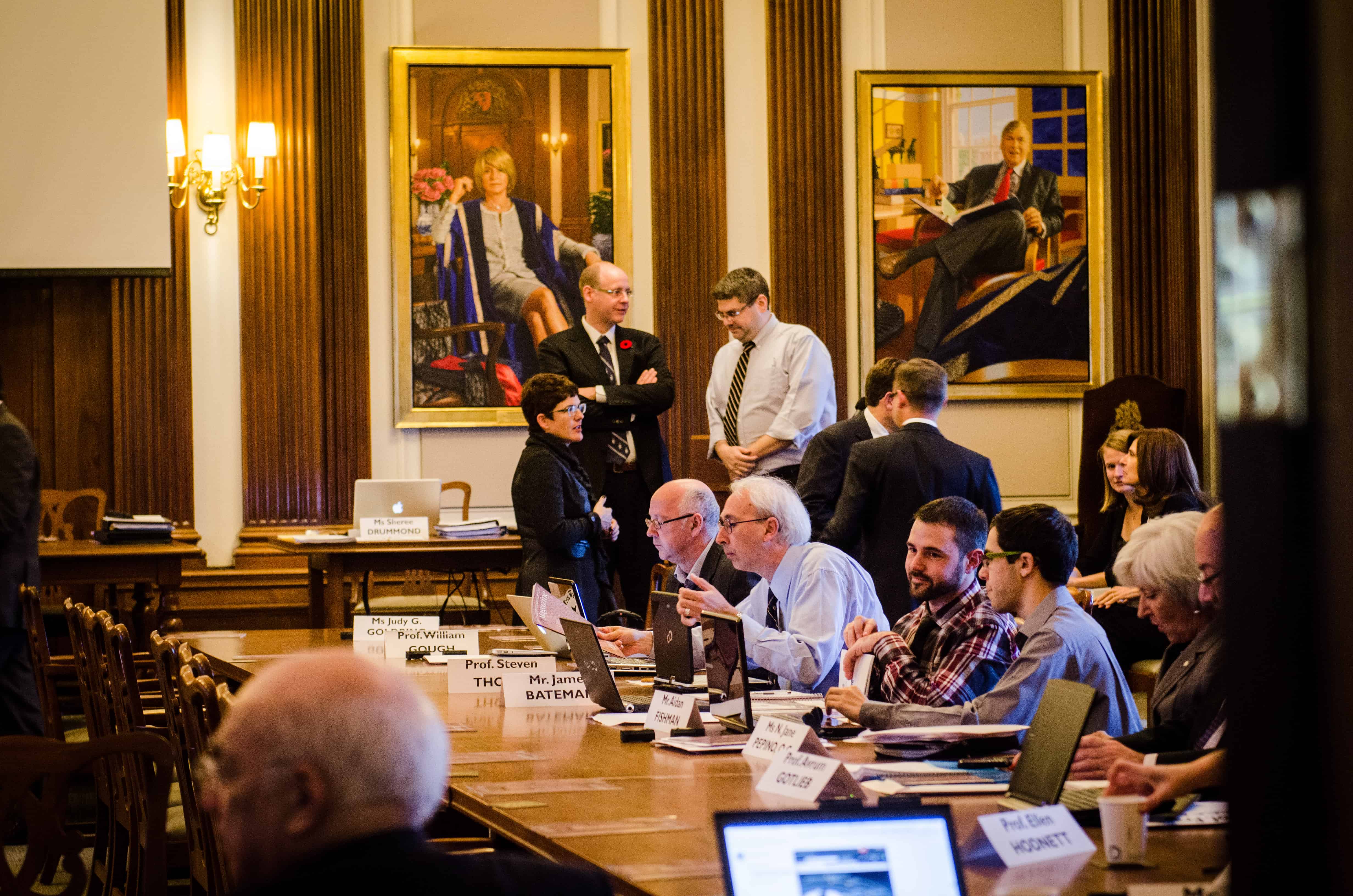U of T president David Naylor defended the controversial Access Copyright agreement at a Governing Council meeting Tuesday, saying the university’s early ratification of the agreement, which has been widely criticized, gave it more flexibility on copyright issues.
“We adopted the [agreement] early on to see if we could be first movers,” Naylor said. “We sought first mover status to see what we could do to secure a reasonable price and to make sure we had an early exit.”
Access Copyright is a Canadian non-profit collective representing copyright holders and publishers . The terms of its 2011 agreement with the Association of Universities and Colleges of Canada would raise the annual fee universities pay for copyrighted material from $3.38 to $26 per full-time student .
The University of Toronto and the Western University both signed the agreement in January . Other Canadian universities have opposed the new agreement, and over a dozen have refused to sign it, including UBC, York, and Queen’s .
Opposition among U of T students and faculty has also been considerable.
“Student unions stand united with faculty and with student unions across the province in our criticism that Access Copyright has no legal basis, as we saw in the recent Supreme Court ruling,” said Erin Oldynski, external commissioner of the Graduate Students’ Union, during the Governing Council meeting.
Oldynski expressed concerns about the agreement’s potential impact on academic freedom, and criticized the university for its failure to consult students and faculty before signing the agreement.
“The student unions recommend that Governing Council move a motion for U of T to reject Access Copyright when it comes up for renewal in 2013,” she concluded.
A Supreme Court of Canada ruling in July expanded the definition of materials considered “fair dealing” and therefore exempt from copyright . Interpretation of the Supreme Court’s ruling has been mixed to date.
“There can be no question the Supreme Court’s rulings are a serious blow to Access Copyright,” wrote Ariel Katz, an associate professor at the Faculty of Law. “The message from the Supreme Court to users is clear: Fair dealing is real; fair dealing is important; do try it at home!”
Access Copyright disputed the significance of the ruling in a July press release, claiming it would have a “limited impact on the importance of the Access Copyright license.”
“The Supreme Court was only looking at about seven per cent of the copying done in schools,” said Maureen Cavan, executive director of Access Copyright. “The decision absolutely does not mean a free-for-all on copyright-protected materials. On the contrary, it leaves copyright licensing in the education sector alive and well.”
With the current status of the Access Copyright agreement in flux, Naylor said the university’s long-term goals were to widen the interpretation of “fair dealing” and to reduce costs.
“This is a very fluid and quite contentious playing field,” Naylor said later in the Governing Council meeting. “The view that this was somehow a done deal when the Supreme Court ruled is not true, I’m afraid: this will continue to evolve, and the key right now is to have an aggressive but principled approach to fair dealing.”
“We certainly have some sympathy with those who argue that it would be ideal for the university to go at this alone at some point. But let’s watch and see how this unfolds in the months ahead.”


